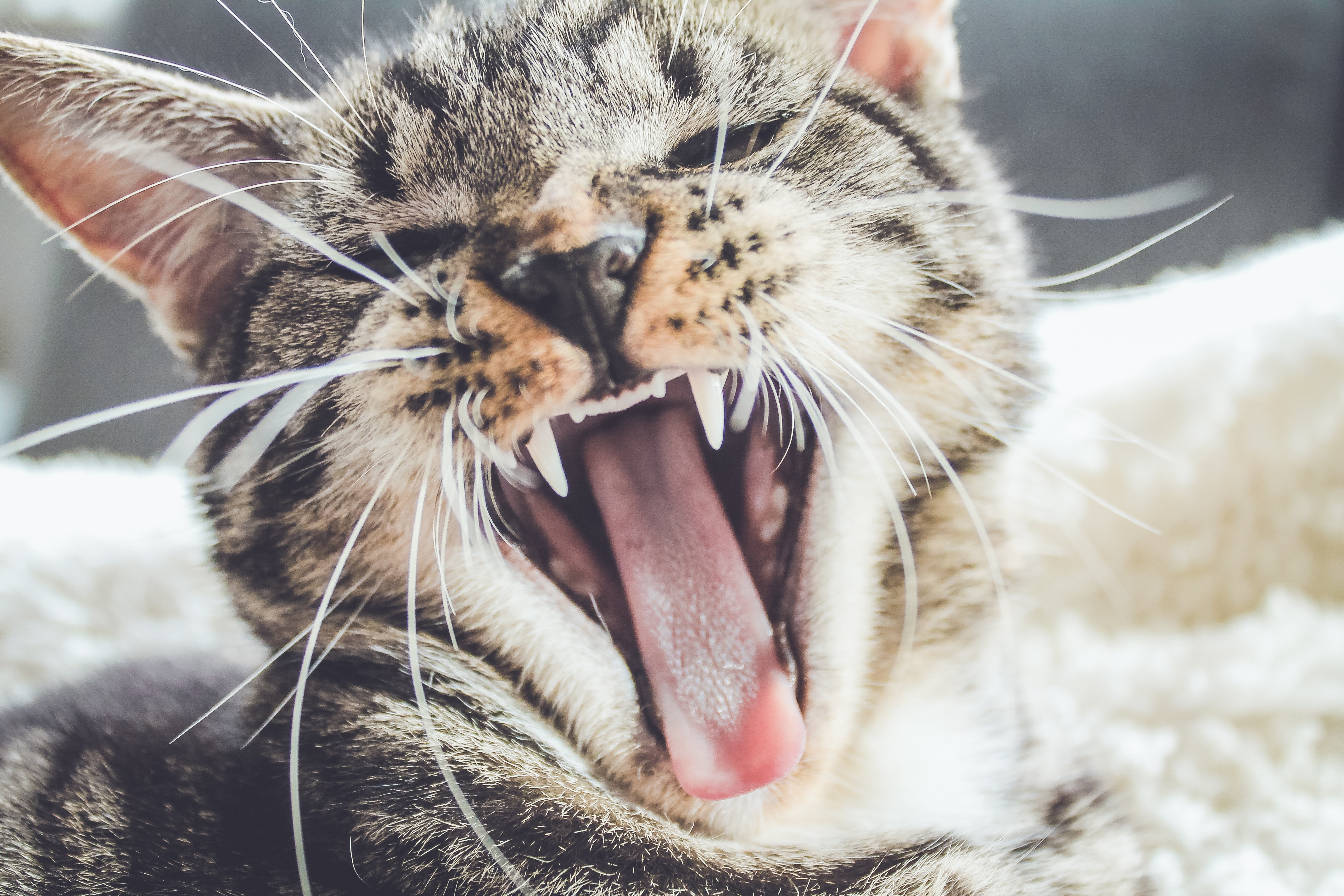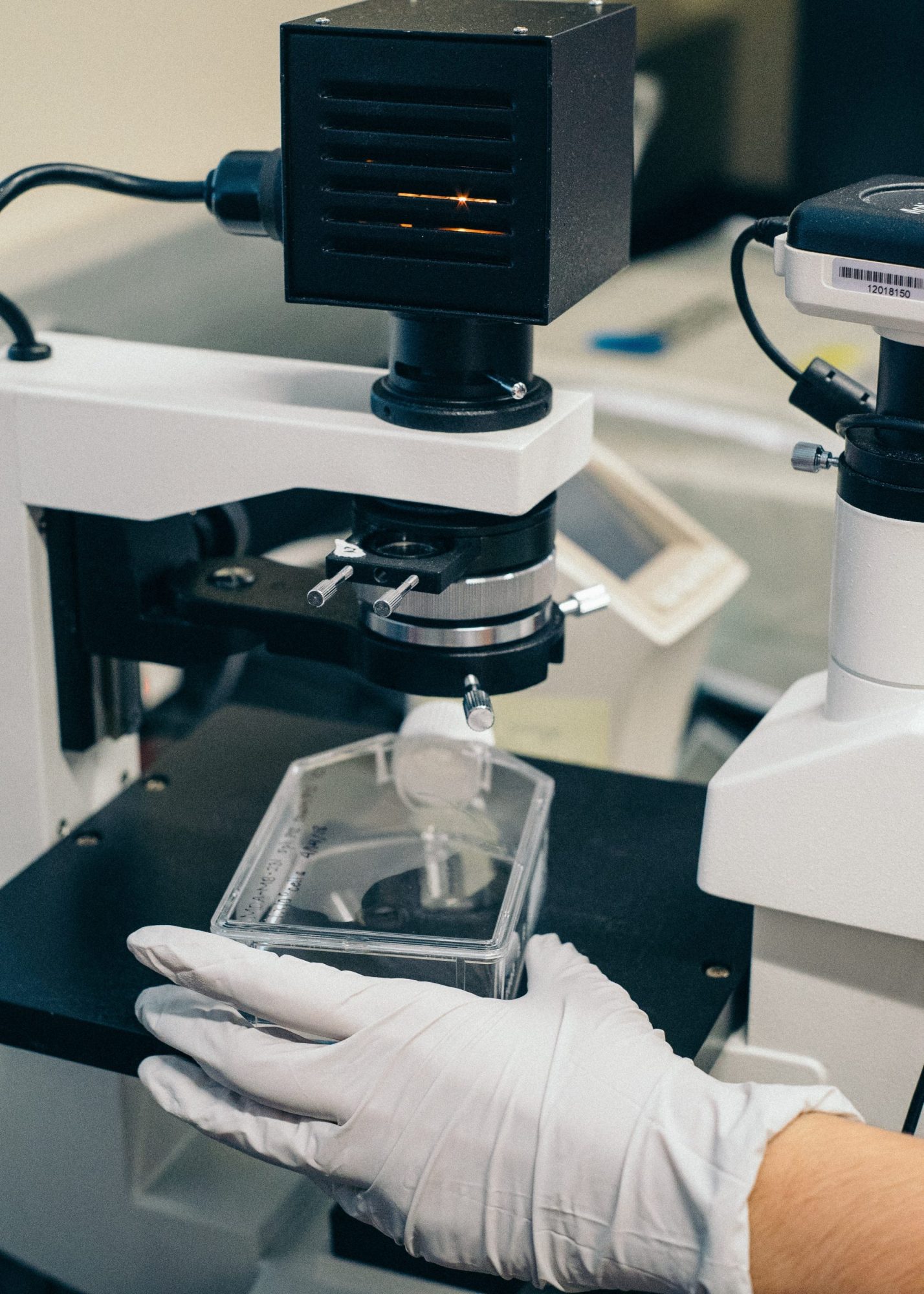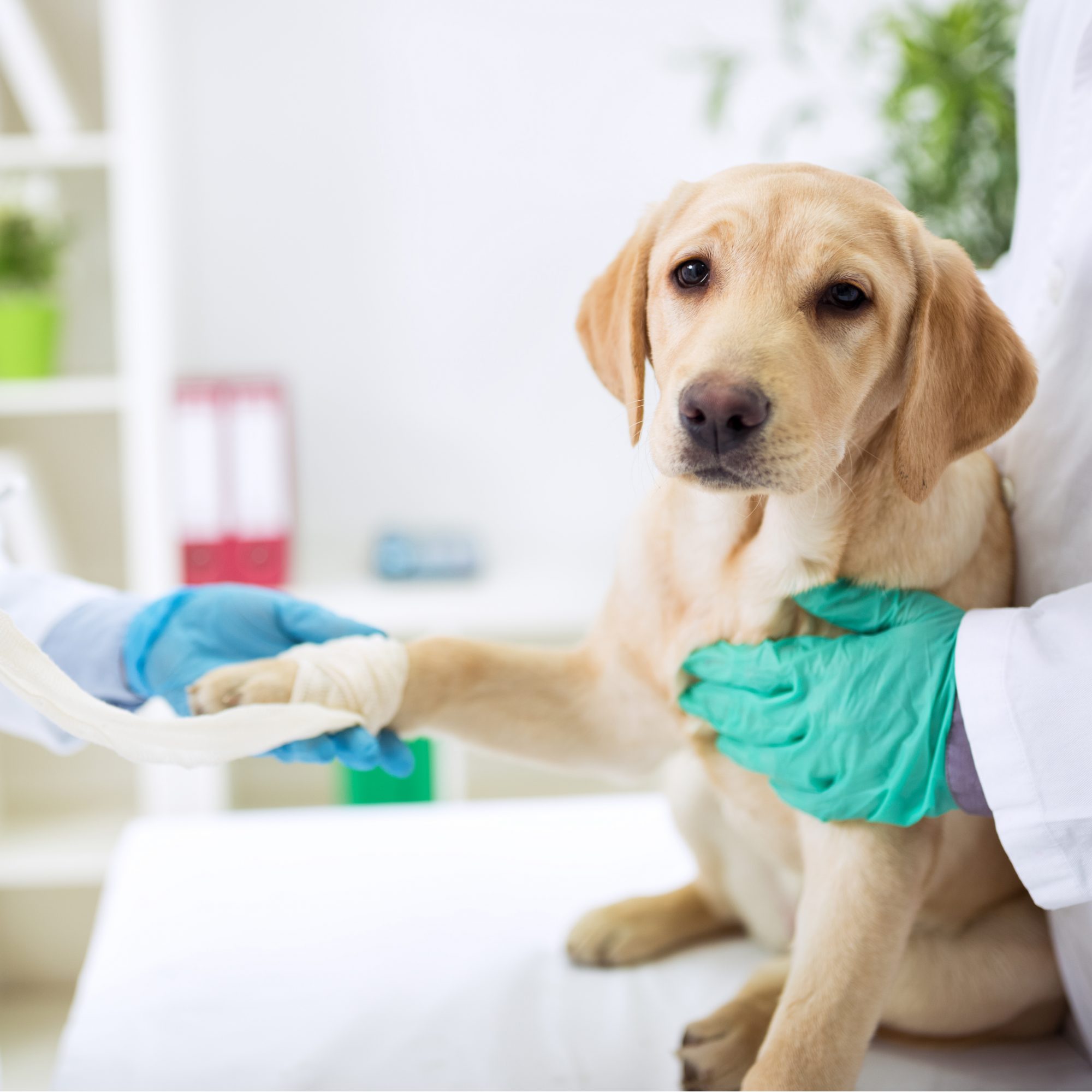
Routine Care
We want to establish the health of your puppy or kitten and ensure that your new companion receives everything they need to have a healthy start. Puppy and kitten wellness health care starts with a comprehensive physical exam. We will then develop a vaccination protocol based on your pet’s life style. Other recommendations may be made such as intestinal parasite screening, de-worming and how to control and prevent external and internal parasites such as fleas, ticks and heartworm.
A puppy or kitten’s developing immune system makes them more vulnerable to illness, so please ask us about a schedule of preventative treatment that is best for your new pet’s first few months of life. From then on we recommend that you bring your pet in at least once a year to ensure that he or she is maintaining a course of good health.
Your puppy or kitten’s first exam is also the perfect time to address any questions or concerns you have regarding your new pet’s health. We are more than happy to discuss topics such as diet and nutrition, behavioral issues, house training, microchipping and vaccinations.
What to bring:
We ask that you bring the health information provided to you by the seller or shelter on your first visit with us, which should include a previous history of vaccines and deworming, as well as a fresh stool sample.
Vaccinations are extremely important in maintaining your pet’s health and preventing diseases. Our canine vaccination protocols are tailored to your pet’s lifestyle based on their activities. Factors such as whether your pet is active outdoors or if they have direct contact with other pets at a groomer or boarding facility will help us determine which vaccines your pet needs.
Nutrition & Exercise We will review your pet’s current eating habits and body condition score to ensure they have a healthy, balanced lifestyle and diet to maintain the best health for your pet. We will also discuss play and exercise to make sure your dog is getting enough physical activity.
Parasite Prevention & Control An annual fecal and blood sample examination is recommended to make sure your pet is free of internal parasites. Internal parasites can be very harmful and potentially transmitted to your loved ones. Our in-house pharmacy has the safest monthly preventative treatments for heartworm, fleas, ticks, and intestinal parasites that can be tailored to meet the specific needs of your pet.
Preparing for the Exam On the day of your pet’s mobile appointment, we always recommend you collect a recent stool and urine sample, ideally less than 12 hours old. The annual wellness exam is also an excellent time for you to address any questions or concerns you may have about your pet’s health.
Dental Evaluation Regular preventive dental care keeps your dog’s teeth and gums healthy. At your dog’s annual exam, we will inspect their teeth and gums for tartar, plaque, tooth decay, fractures, or infection. In addition, we also provide dental cleaning services at our clinic. Our veterinarians strongly recommend at-home dental care, and we can discuss how to properly care for your dog’s teeth and gums at home.
Dental Prophylaxis Dental disease can lead to a multitude of problems for our pets. The most obvious is foul smelling breath or difficultly eating. Once our pets are exhibiting these signs, it is likely our loved ones already have discomfort and it is possible that there could even be a bacterial infection spreading to internal organs.
We highly recommend early prophylactic dental cleaning as a way of preventing and correcting these problems. While your pet is anesthetized, a more thorough oral exam is performed. During a routine dental cleaning, dental tartar is removed and the teeth are ultrasonically scaled above and below the gum-line. Radiographs of teeth are taken to fully assess tooth and root health. Certain teeth may need to be extracted in order to reduce or eliminate the associated pain and infection.
Dr. Erica has advanced training in dentistry. Her formal veterinary school training has been enhanced by completing 16 hours of continuing education and hands on laboratories with a boarded veterinary dentist. You can be assured that your pet will receive a fully comprehensive dental to keep your pet healthy and pain free.
Services Include:
- Routine cleaning & polishing
- Complete oral charting and examination
- Tooth extractions
- Dental radiography
- Oral surgery
- Bonded sealants
- Doxirobe treatments
Internal + Diagnostic Medicine
We are committed to your pet’s health and wellness. If your pet is ill and requires more advanced care, we have the experience and advanced equipment to diagnose and treat your pet’s condition. Our veterinarians can quickly diagnose common medical problems including diabetes, kidney disease, liver disease, and thyroid disease as well as complex conditions such as neurological disorders and heart conditions. In the event your pet needs more intensive or specialized care, our veterinarians will refer your pet to a specialist facility.
Symptoms of a Serious Medical Issue
Certain symptoms may indicate a more serious underlying disease or illness. Symptoms of potentially serious medical issues include:
- Lethargy
- Loss of appetite, decreased appetite
- Weight loss/gain
- Vomiting
- Diarrhea or constipation
- Coughing
- Sneezing
- Increased drinking or urination
- Inappropriate urination or defecation (indoors)
- Limping
- Difficulty rising, walking or climbing stairs
- Itching
- Shaking head
- Foul smelling ears
- Foul breath
- Eye or nose discharge
- Wounds that are not healing
- Confusion, disorientation, anxiety, or changes in sleep patterns
- Bruising or bleeding abnormalities
- Fever
- New lumps or bumps
Any other sudden or progressive change you note in your pet’s attitude or behavior. If you notice that your pet exhibits any of these symptoms, please call us as soon as possible to schedule an exam.
Diagnostic services are an important part of ensuring your pets health. We recommend blood work for any patient undergoing anesthesia, as well as routine bloodwork for our geriatric patients. We are equipped with full in-house blood work analysis.
We also team up with a diagnostic laboratory for overnight analysis of over 300 panels including senior blood work, urinalysis, thyroid panels, cytology, histopathology, and other specialized testing. In most cases, overnight results are obtained, allowing a fast and reliable diagnosis to help get your pet feeling better as quickly as possible.


Speciality Care
If your pet undergoes an orthopedic procedure, the post surgery rehabilitation can be equally important. Studies show less pain and faster recovery with post operative acupuncture therapy, passive range of motion exercises, as well as individualized rehabilitation depending on the surgery performed. We can perform rehabilitation assessments and direct patients in the right direction toward a full recovery!
We are available to come to your home with all rehabilitation devices, reducing stress and anxiety in the post operative patient.
We have experience rehabilitating a range of conditions and are here to help your pet return to being active in the “boat” in no time.
Dr. Erica provides compassionate and attentive acupuncture treatments for dogs, cats, and horses. Veterinary acupuncture is a safe treatment that works with traditional veterinary medicine to help treat various health conditions. Most patients tolerate treatment very well. In fact, many pets become relaxed (and even sleepy!)
How does acupuncture work?
Acupuncture needles are inserted into acupuncture points, or areas where nerve tissue bundles and blood vessels meet. Stimulating a nerve at an acupuncture point induces reactions that modulate pain signaling, dilate blood vessels increasing blood supply and release chemical substances that can work to repair damaged tissue. Acupuncture also releases pain relieving hormones such as serotonin, creating a widespread reduction in pain sensation.
What conditions does acupuncture treat?
Acupuncture can help treat many health conditions your pet may be experiencing including chronic and acute pain, musculoskeletal diseases (soft tissue injuries, neck and back pain, arthritis), neurologic diseases (seizures, intervertebral disk disease, nerve injuries/paralysis), post-operative surgical healing, general weakness, and behavioral problems.
How many treatments will my pet need?
The number of treatments your pet may need before seeing an improvement in your pet’s health will depend on their medical history and current condition. Acupuncture is a complementary process and works in conjunction with traditional veterinary medicine. It may be necessary to combine various treatments and therapies to achieve the desired goal. Generally, your pet will start with a more frequent treatment schedule and begin to require fewer treatments as their condition improves.
Contact us today if you have any questions regarding our acupuncture services and whether acupuncture may be right for your pet
We are provide safe surgical procedures for your pet including:
- Spay, Neuters
- Mass removals
- Biopsies
- Lacerations and bite wounds
- Abdominal exploratory surgery
- Foreign body surgery
- GDV and gastropexy
- Splenectomy
- Oral surgery
What to expect prior to surgery
We first fully examine each patient to ensure they are a good candidate for surgery. Sometimes this includes bloodwork or radiographs. We then develop a comprehensive multimodal pain management plan to ensure safe and smooth surgery and recovery.
During surgery
We make sure your pet is comfortable and safe during any procedure. All patients receive full anesthesia monitoring by an experienced technician. This includes heart rate and rhythm, respiratory rate, oxygen levels, blood pressure, and temperature.
After surgery
Communication is a very important part of the surgery process. We keep you updated with the condition of your pet at all times. We continue to monitor each patient’s temperature, alertness, and comfort level after surgery. Once your pet is ready to go home, we will go over all instructions important to keep them safe and comfortable for a smooth recovery.
Dr. Kim Radway DVM, Diplomat ABVP (Canine/ Feline) – Rocky Mountain Veterinary Ultrasound
Kim graduated high school from Pueblo, Colorado and then received her bachelor degree in Microbiology, Magna Cum Laude, from Colorado State University in 1996. After graduating Suma Cum Laude from Colorado State University School of Veterinary Medicine, she completed a medicine, surgery and emergency medicine internship at The Veterinary Specialists of Northern Colorado in Loveland Colorado in 2001. The next 10 years were spent in general practice in Steamboat Springs, Colorado. Full time work included regular emergency duty as well as comprehensive medicine and surgery.
Beginning in 2008, she began training in ultrasound at the Academy of Veterinary Imaging in Arlington, Texas. After completing every ultrasound course offered, she entered their year-long DVM Imaging Program. This ended in February of 2011 with a certification exam. In 2008, she started a mobile ultrasound business, Rocky Mountain Veterinary Ultrasound, while also working full time in general practice. In July of 2011, Kim left general practice to pursue ultrasound full time and now serves many practices around the rocky mountain region.
From May of 2011 until May of 2013, Dr. Radway began working for New Jersey Mobile Associates one week per month. They are one of the highest volume mobile ultrasound practices in the country and were an amazing training ground in mobile ultrasound skills. Dr. Radway is now reading ultrasound exams through telemedicine for Sonopath.
In December of 2013, Dr. Radway earned the status of Diplomat of the American Board Veterinary Practitioners. This is one of twenty-one veterinary specialty groups accredited by a special committee of the American Board of Veterinary Specialties, a division of the American Veterinary Medical Association, to recognize excellence in clinical practice through the certification of species-oriented specialists.
Beginning in August of 2014, Dr. Radway began also reading telemedicine ultrasound cases for Sonopath, LLC a national veterinary medicine ultrasound consulting business based out of New Jersey. This has been a new and exciting addition to her busy schedule.
Kim’s favorite activities surround spending time with her husband and two daughters. This commonly includes outdoor activities such as skiing, hiking and white water rafting. Their house is also full of pets including 2 dogs, 1 cat, a guinea pig and two horses
YVVS offers full service orthopedic surgery options for our clients and patients.
Dr. Egger is a board certified diplomate of the American College of Veterinary Surgeons. As a native of Denver, Colorado, he completed his undergraduate education at Colorado State University. In 1975, he received his DVM, also from Colorado State University. He completed a small animal internship at Purdue University (1976) and a surgical residency at the University of Missouri (1978). Following a short period in a private veterinary surgical referral practice in Boston, he joined the teaching faculty at Iowa State University in 1978 where he specialized in orthopedics. In 1982, after fulfilling the requirements, Dr. Egger was certified as a diplomate of the American College of Veterinary Surgeons (ACVS). Later that year, he joined the faculty at Colorado State University and in 1986, was promoted and tenured. Dr. Egger has participated as Chairman of various ACVS and Veterinary Orthopedic Society committees over the years and in 1986, served as president of the National Veterinary Orthopedic Society.
Surgeries performed include:
- Cruciate ligament stabilization: Tibial Plateua Leveling Osteotomy (TPLO). Technical Description (TPLO is the preferred method of stabilization for most large-breed active dogs); Extracapsular Repair; Tibial Tuberosity Advacement (TTA)
- Fracture repairs, internal and external coaptation/stabilization
- Patellar Luxation Correction
- Wedge, Excisional, or Block Trochlearplasty: Imbrication; Femoral Head Osteotomy; Elbow dysplasia; Ulnar Osteotomy
Emergency Care
We are experienced and fully equipped for emergencies. Common emergencies we see include lacerations, dog bite wounds, porcupine quills, hit by cars, toxin ingestions (marijuana, rat poison, chocolate, etc). If you think something could possibly be toxic to your pet, feel free to call and we can quickly consult over the phone whether we suggest a visit or not.
Other emergencies include internal organ dysfunction or immune mediated disease. We are equipped for life saving measures including blood and plasma transfusions, diagnostic testing, radiology, and hospitalization and treatment after hours.
Please call if your pet experiences an emergency and we will help ensure your pet is seen immediately.
Emergency Call

